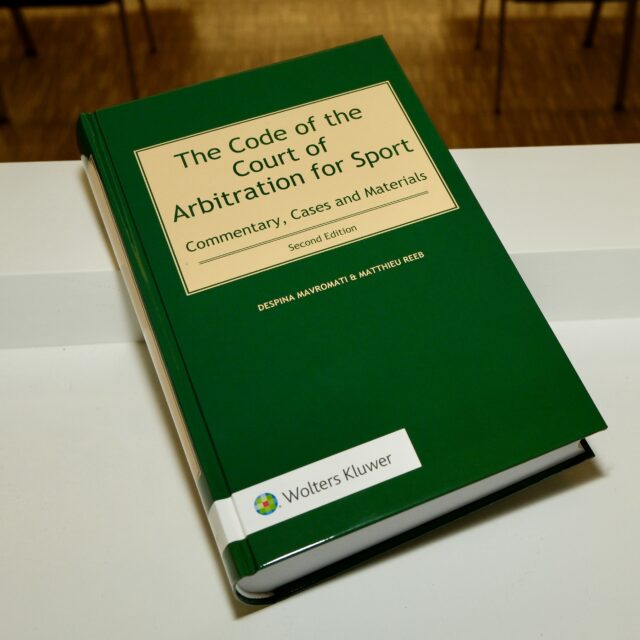SFT Judgment 4A_98/2017 of 20 July 2017 – Fédération X. v. Z. Sàrl
The Issue
Does a decision on jurisdiction qualify as an “Interlocutory Award on Jurisdiction” if it does not address all the issues related to jurisdiction and leaves them to be decided with the final award?
The Facts
The limited liability company Z filed an arbitration request based on Art. 26 para. 4 of the Energy Treaty of 17 December 1994 (TCE), against Federation X to recover USD 13 billion for damages arising out of alleged unlawful expropriation of investments made by Federation X. Company Z filed a request for arbitration before the Permanent Court of Arbitration (PCA) under the UNCITRAL Arbitration Rules. As per the arbitration agreement, Geneva, Switzerland was the seat of the arbitration and English was the language of the procedure.
Federation X objected to jurisdiction by invoking various grounds (among others: it never ratified the TCE and that the loans from Z to another company could be considered as investments in the sense of Art. 1 (6) TCE; the scope of the TCE excluded the fiscal nature of the dispute; Z is a company that does not pursue substantive commercial activities in country Y so that the Federation X could refuse the benefit of the third part of the treaty based on article 17 TCE; the investments were illegal and were therefore not protected by the TCE).
The arbitral tribunal issued an order of procedure in which it first examined some of the arguments on the lack of jurisdiction and eventually rendered an act entitled “Interlocutory Award on Jurisdiction”. Through this decision, it dismissed three of the aforementioned grounds while two of them had to be dealt together with the merits of the case.
The Swiss Federal Tribunal judgment
Meaning of an interlocutory award on jurisdiction
The Federal Tribunal repeated that the admissibility of the appeal depends on the content of the decision and not the name given to it by the arbitral tribunal (4A_98/2017 at 2.1. See also ATF 142 III 284 at 1.1.1; 4A_222/2015, at 3.1.1). Accordingly, an arbitral tribunal renders an interlocutory award on jurisdiction that is appealable before the Swiss Federal Tribunal when it dismisses an objection to jurisdiction, irrespective of the name given to this decision. As a general rule, Article 186 para. 3 PILA provides that the arbitral tribunal can issue an interlocutory decision on jurisdiction. However, the arbitral tribunal might rule otherwise if it sees that the objection to jurisdiction is too closely linked to the facts of the case to be decided separately (4A_98/2017 at 2.2; see also ATF 121 III 495 6d p. 503).
Therefore, the essential characteristic of all appealable decisions rendered by an arbitral tribunal is that they decide on the question of jurisdiction in a final manner (4A_98/2017 at 3.2). In this respect, and even though it is admitted that reasons of procedural economy would justify the arbitral tribunal to rule on its own jurisdiction first (and terminate the procedure in the event of no jurisdiction), this may have the counterpart of delays of many immediate appeals (4A_98/2017 at 3.2.1).

No interlocutory award on jurisdiction if some issues are left to be decided with the final award
In this commercial (i.e., not CAS-related) judgment, the Federal Tribunal gave the admissibility conditions of an appeal based on jurisdiction (Art. 190 (2) (b) PILA) by examining the text of the provision itself: the right to file an appeal to the Federal Tribunal is based on the existence of a decision in which the arbitral tribunal expresses itself on several issues related to jurisdiction, but also declares itself “competent” or “incompetent”.
In this respect, if a tribunal only deals with some of the issues, referring the others to a later stage of the proceedings, it does not render a decision – positive or negative. In the particular case the arbitral tribunal ruled (in a final and binding manner) on three out of the five grounds by the appellant regarding lack of jurisdiction, and left the other two grounds open to be dealt with on the merits of the case.
The Takeaway
It is a general rule under the Swiss PILA that, as soon as the arbitral tribunal issues a binding award on its own jurisdiction, the parties wishing to oppose to it have to file an appeal before the Swiss Federal Tribunal (otherwise they lose their right to do so at a later stage).
This is an interesting judgment to the extent that it analyzes the conditions for an interim award and an interlocutory award on jurisdiction. In this respect, interlocutory awards on jurisdiction do not qualify as such (irrespective of their name) unless they deal with all the issues related to jurisdiction. This is however still very confusing for the parties, who, in case of doubt, should attack the interim / interlocutory award directly. They should do so even at a high risk of having their appeal rejected as inadmissible – because otherwise they risk losing their right to appeal based on the “Einlassung” doctrine (see also a similar case related to CAS jurisdiction, 4A_222/2015, X v. USADA & WADA, of 28 January 2016).







